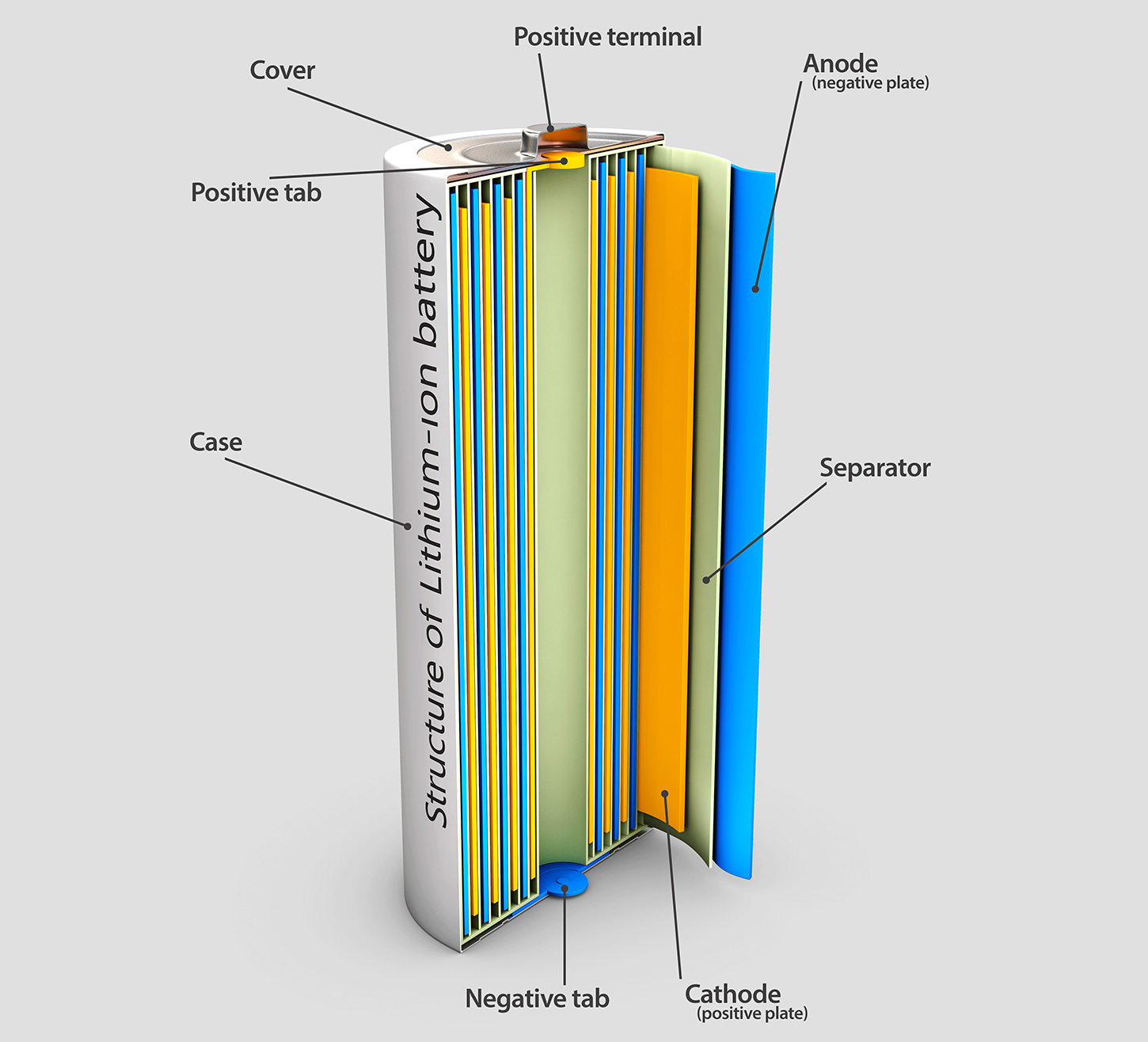Battery-makers are eagerly researching ways to incorporate silicon, which can potentially store 10 times as much energy as graphite, into anodes. Now silicon anode specialist GDI says it has developed a 100% silicon roll-to-roll processed anode for next-generation batteries, potentially enabling graphite-free battery cells that deliver far higher energy density, faster charging and greater safety than current cells.
GDI’s anodes have demonstrated specific capacity of over 3,200 mAh/g in third-party testing.
The new anode uses a 100% silicon architecture, bonded directly to copper alloy foil from Carl Schlenk, a provider of high-performance metal foils.
In partnership with plasma equipment and glass production specialist AGC, GDI has demonstrated MWh-scale roll-to-roll production on industrial equipment. The company calls this a proof of concept to show that its silicon anodes can be produced at GWh scale, delivered directly to cell makers and integrated directly into existing cell production lines.
Navitas nail penetration testing demonstrated impressive resistance to thermal runaway. After leaving a nail pierced through a 3.5 Ah cell with a GDI anode for 10 hours, there was no fire, no smoke, and temperatures only increased by 10° C.
GDI says it is already executing initial product development partnerships in medical and defense markets, and is simultaneously carrying out initial testing for the premium EV segment.
“Our mission at GDI is to deliver a 100% silicon anode that can be integrated into existing battery production, greatly reduces GHG emissions from the anode production, and scales rapidly on cutting-edge industrial equipment,” said GDI founder and CEO Rob Anstey. “In partnership with AGC and Navitas we have done all three. The next step is to show our anode can enable EV batteries that power vehicles with >500 miles of range, allows them to charge 250 miles in 15 minutes, hundreds of times, and improves safety. GDI and AGC have developed a clear roadmap to gigawatt-scale production by 2028, so that this technology can be used in tens of thousands of high-performance vehicles by 2030.”
Source: GDI

buy lasuna pill – diarex for sale online purchase himcolin for sale
buy besifloxacin without a prescription – sildamax usa buy sildamax without prescription
gabapentin generic – where can i buy ibuprofen azulfidine 500 mg drug
buy benemid 500mg without prescription – benemid 500 mg uk order carbamazepine 400mg pills
celebrex 100mg tablet – purchase urispas indomethacin cost
mebeverine 135mg cost – colospa 135mg tablet cilostazol 100mg pills
buy diclofenac cheap – aspirin price aspirin 75mg us
rumalaya without prescription – buy shallaki generic buy amitriptyline pill
brand pyridostigmine 60mg – where can i buy azathioprine imuran 25mg brand
purchase diclofenac online cheap – buy nimotop pills for sale nimodipine medication
cyproheptadine 4 mg cost – buy tizanidine paypal buy tizanidine paypal
buy meloxicam generic – buy rizatriptan 10mg pills toradol 10mg drug
purchase artane online – generic trihexyphenidyl voltaren gel online buy
buy omnicef generic – order cleocin for sale
order accutane 20mg pills – accutane medication buy deltasone 40mg pill
deltasone 20mg tablet – buy omnacortil for sale buy elimite cream
acticin order online – purchase tretinoin order retin cream
cost betnovate 20 gm – buy differin cream for sale monobenzone cost
buy metronidazole 200mg online cheap – cenforce 100mg cheap purchase cenforce generic
buy augmentin generic – augmentin 625mg uk levoxyl price
cleocin 150mg cheap – indomethacin 50mg usa purchase indocin generic
cozaar 50mg pills – buy cozaar 25mg sale brand cephalexin
crotamiton drug – bactroban ointment online order aczone uk
buy modafinil 100mg generic – buy promethazine 25mg sale buy meloset generic
bupropion 150mg ca – buy zyban cheap cheap generic shuddha guggulu
buy generic xeloda – capecitabine 500mg uk cost danocrine 100 mg
progesterone 200mg for sale – prometrium 100mg brand order clomiphene
buy norethindrone generic – lumigan online yasmin pills
г‚·гѓ«гѓ‡гѓЉгѓ•г‚Јгѓ« гЃЇйЂљиІ©гЃ§гЃ®иіј – г‚·гѓ«гѓ‡гѓЉгѓ•г‚Јгѓ« еЂ¤ж®µ г‚·г‚ўгѓЄг‚№ еЂ¤ж®µ
eriacta incredible – sildigra four forzest cluster
purchase indinavir generic – cheap fincar for sale buy diclofenac gel online cheap
valif online sin – buy sinemet 20mg pills purchase sinemet
modafinil order – duricef 500mg usa epivir for sale online
buy promethazine pill – buy phenergan medication oral lincocin 500mg
generic ivermectin online – order carbamazepine 200mg pills order carbamazepine online
order prednisone generic – nateglinide over the counter buy cheap capoten
order deltasone 10mg for sale – purchase captopril without prescription order capoten 25mg pills
accutane 40mg sale – order dexamethasone 0,5 mg pills buy zyvox 600mg
buy amoxil cheap – buy diovan 160mg generic order ipratropium 100 mcg sale